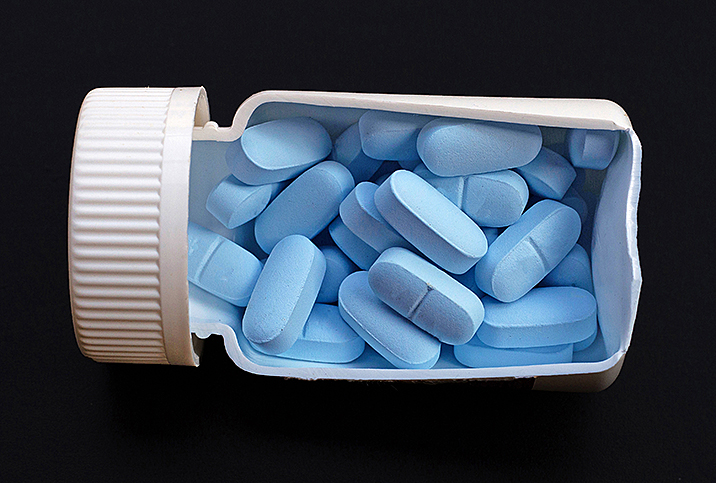Navigating Erectile Dysfunction in the Gay Community

Though the highest rates of erectile dysfunction (ED) occur in the United States, IJIR: Your Sexual Medicine Journal estimated that its global prevalence will surpass 322 million men by 2025. With such a ubiquitous reach to nearly every country and culture, one would justifiably expect to see different solutions for different lifestyles and different concerns for different men.
This certainly holds true for gay and bisexual men, whose experience with ED may differ from that of straight men.
It's all normal
No matter what your background, your penis did not come with an instruction manual, and questioning whether your bodily functions are normal is normal. And if you're worried about the normalcy of erectile dysfunction in particular, these numbers might help ease your mind.
A 2005 study in Archives of Sexual Behavior found that gay men reported higher rates of ED than their age-matched straight counterparts across all categories, whether it was occasionally, less than half of the time or most of the time. A total of 47.2 percent of gay men reported ever having occasional erectile dysfunction, compared to 38.6 percent of straight men.
If nearly half of gay men experience erectile dysfunction at some point, you're surely not alone. However, if these difficulties are impeding your quality of life, you do need to prioritize talking to your doctor about treatment options.
Giddy urology and sex health experts address the different types of erectile dysfunction in the ED Guide video series. Click here to watch the video.
ED medication & the gay community
Interestingly, while some straight men may feel shame about using ED medicine, the opposite—a sort of affinity toward it—can be found in certain circles of gay and bisexual men.
A 2013 Australian study examined the effects of erectile dysfunction medication in the gay community to find any correlation to unsafe sexual practices. The study found that taking ED medication had little to no effect on the use of a condom during sex. In fact, the study went on to discover that gay men who take erectile dysfunction meds are, on average, more sexually active, and they primarily take the medication for an enhanced sexual experience.
So next time you're worried that your date is going to think negatively about you taking ED medicine, just remember that both of you may ultimately be satisfied with that decision.
HIV & ED
While the human immunodeficiency virus (HIV) isn't exclusive to men who have sex with men, it does disproportionately impact them. A large proportion of people seeking antiretroviral therapy (ART) to treat HIV are gay and bisexual men.
In 2014, a group of Mexico City doctors published a study that had examined 109 HIV patients from January to December 2008. These patients were undergoing highly active antiretroviral therapy (HAART). Researchers found that more than 65 percent of these men experienced ED. This high percentage is supported by similar findings from other studies. The authors of this particular study, however, posited that the high rate of erectile dysfunction in patients taking HAART is not predicted by sexuality, but by HAART's known side effect of dyslipidemia, or abnormally elevated cholesterol and lipids in the blood.
No matter what the exact medical cause, most studies agree that rates of ED are higher in HIV patients, a large portion of whom are men who have sex with men. If you are undergoing treatment for HIV and having difficulty achieving or maintaining an erection, talk with your doctor about what steps to take.
What to take away
Having erectile dysfunction can be frustrating, but it's not the end of your sex life. Sex has been pretty important to people for quite a long time, so home remedies, medications and medical devices abound to help people dealing with sexual issues.
One new treatment method worth investigating is a wearable constriction or vacuum device. Some medical-grade wearables like Eddie by GiddyⓇ are proven effective in maintaining erections, without the side effects of ED medications.
It's also worth bearing in mind that research into ED has only just begun. More studies and trials are completed every year, and it's safe to say that the future looks bright for men with ED.


















